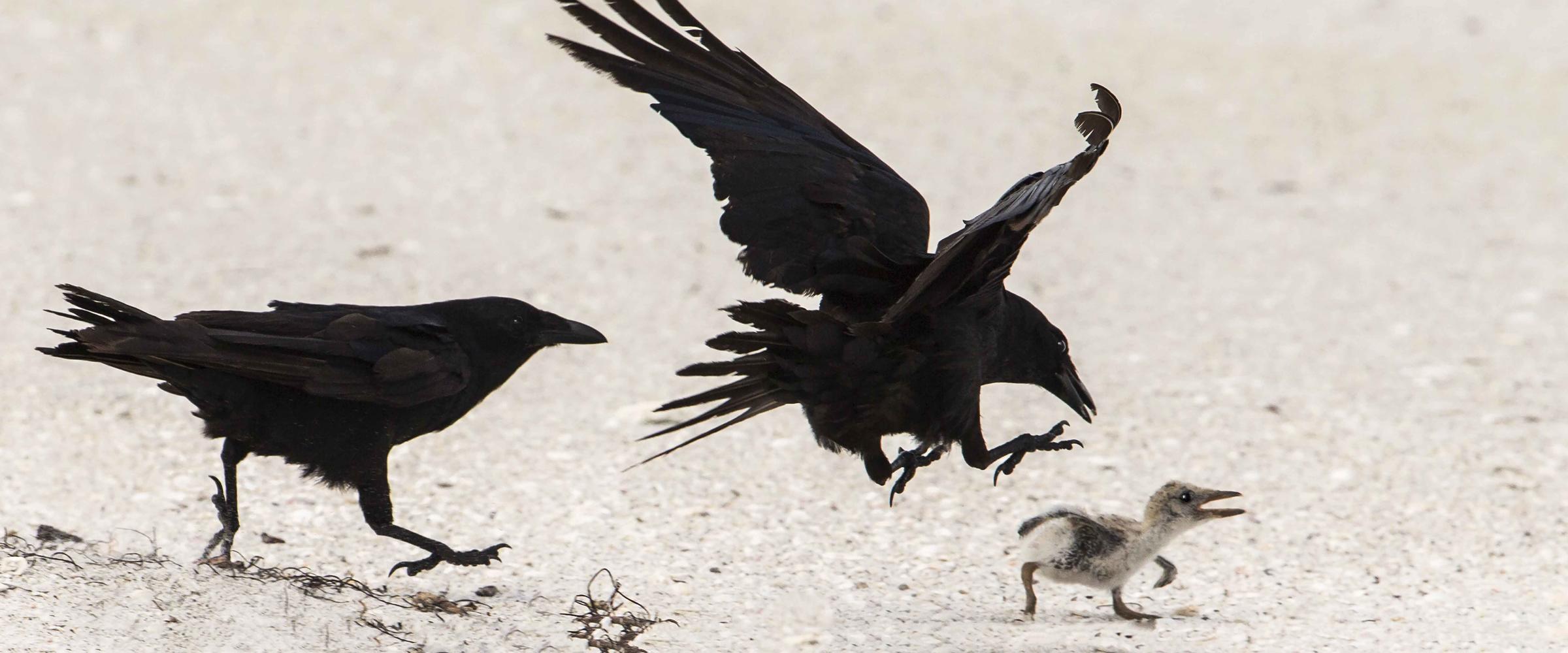Shorebird populations have declined over the past few decades from many pressures along coasts. Habitats are lost to development, shrunk from sea level rise, and impacted by human disturbance. While work continues on habitat protection and climate change, better management of human disturbance can help coastal birds right away. Even relatively minor disruptions - like beachgoers causing a colony to flush from their nests - can result in eggs falling victim to predators, chicks overheating in the hot sun, and parents losing critical energy reserves as they struggle to feed chicks.
Audubon and our partners in the Atlantic Flyway Shorebird Initiative recently embarked on an innovative, flyway-level project to better understand the impacts of human disturbance to shorebirds. Researchers along the Atlantic Coast and Florida’s Gulf Coast are gathering disturbance data in both nesting and non-nesting shorebirds. This modern form of conservation science considers not only the human role in disturbance but will also help determine strategies to encourage more shorebird-friendly behaviors by people. Acclaimed shorebird researchers at Virginia Tech are collecting and analyzing this data, and we hope to share valuable insights from this project soon.
In the meantime, here are some tips to ensure both you and the shorebirds safely enjoy Florida’s beaches:
• Take your trash with you. It attracts predators.
• Stay out of posted areas, even if you don’t see birds inside them.
• Observe birds from a distance. If they take flight, you are too close.
• Dispose of fishing line and tackle appropriately.
• Leave Fido at home. Dogs and cats can unintentionally cause nesting birds to flush.
• Do not feed any birds, especially shorebird predators like gulls, crows, and herons.





